
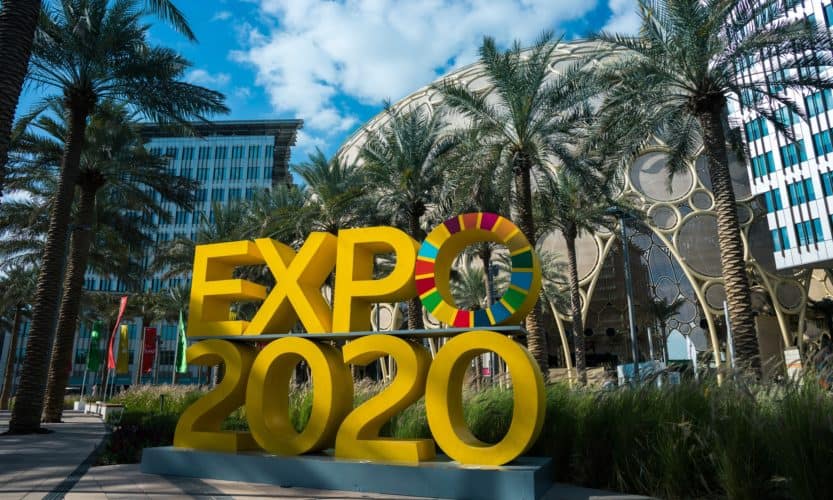
Expo 2020, the World Expo hosted by Dubai, has come to an end. After being postponed due to the COVID-19 pandemic, the event was open to the public from October 2021 to March 2022.
A stellar feat of human ingenuity, the latest world’s fair united over 24 million people from around the globe in its six months. But what will we say of the event in a few years?
Before we look at the legacy of Expo 2020, let’s take a step back.
In April 2020, the government of the United Arab Emirates requested a postponement of the event. A month later, the necessary voting and paperwork were done — and the world’s fair was officially postponed by a year.
Due to the pandemic, stringent safety measures were necessary. Proof of vaccination or a negative PCR test result, face masks, social distancing, and hand sanitising were all meant to make visitors feel safe.
Of course, those measures only really work when everyone follows them; staff, volunteers, and visitors alike. I visited Expo 2020 in its last month. Staff barely even looked at the QR code we showed at the entry and social distancing was virtually nonexistent.
Nonetheless, organising a $33.4B event is quite the challenge, to say the least — and no part of the pandemic made it any easier. But if any city is going to be able to tackle such a massive urban planning challenge, surely it’ll be the place where seemingly all buildings have ‘Tower’, ‘Hotel’, or ‘Corp’ in their name. Right?
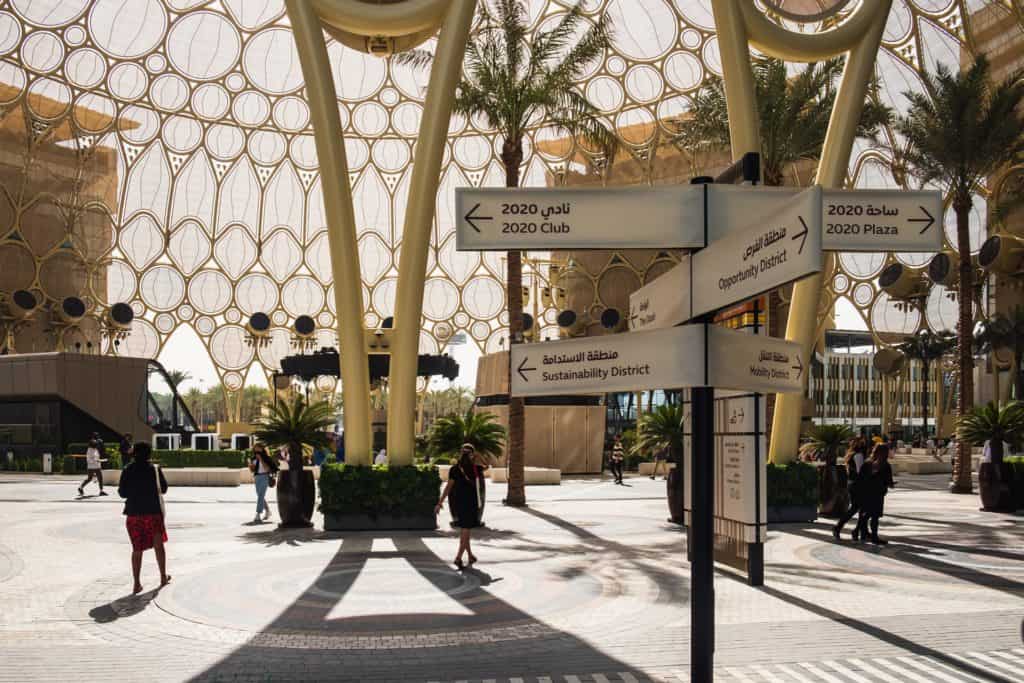
Expo 2020 is the world’s biggest event of the year, outside the Olympics. In other words: an opportunity that international architecture, engineering, and construction firms didn’t hesitate to jump on.
The main site of Expo 2020 was a 4.38 square kilometre section of land near Dubai’s southern border with Abu Dhabi. A stretch of reclaimed desert sand that redefined urban planning, if you will.
In this area, three thematic districts surround the central Al Wasl Plaza — the beating heart of the event. Each district focuses on one of the three sub-themes of Expo 2020: Sustainability, Mobility, and Opportunity.
With countless suppliers working on the event for years, Expo 2020 pushed the boundaries of architecture, infrastructure, and the dexterity of the human spirit.
The road to Expo 2020 in numbers
The theme of Expo 2020 is ‘Connecting Minds, Creating the Future’. In the words of the Bureau International des Expositions (BIE), the organisation behind World Expos:
“Expo 2020’s theme is based on the belief that bringing the world together can catalyse an exchange of new perspectives and inspire action to deliver real-life solutions to real-world challenges.”
Bureau International des Expositions (BIE)
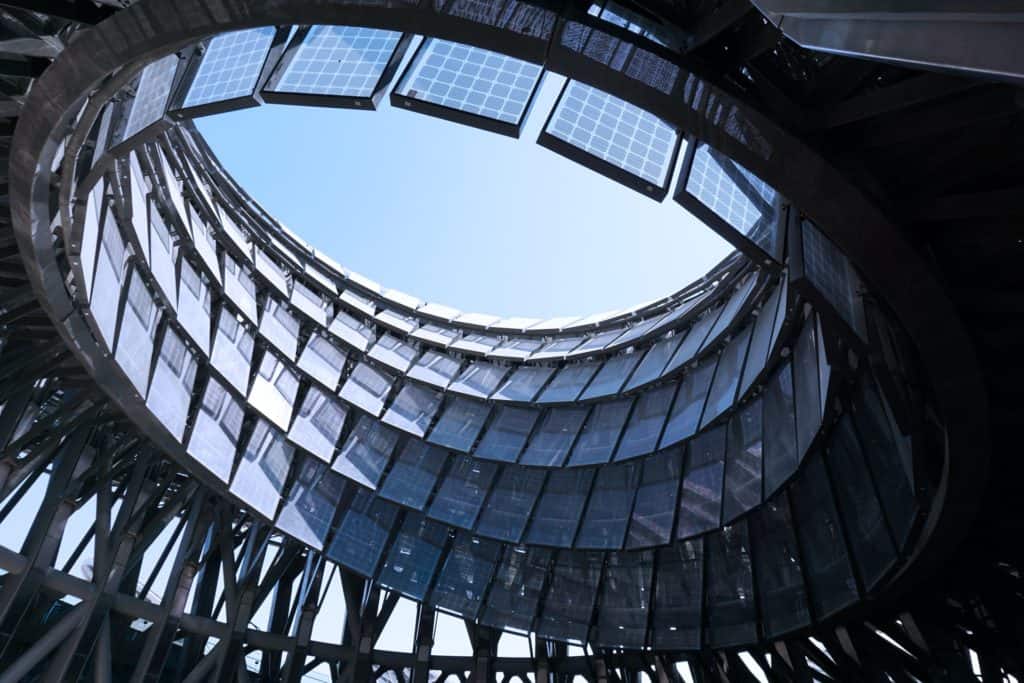
Expo 2020 aimed to create the greatest global gathering in history. As only the second expo in history with more than 190 attending countries, it’s safe to say the organisers succeeded.
The three sub-themes — Sustainability, Mobility, and Opportunity — inspired the 24M+ visitors to care for the planet, explore new frontiers, and build a better future for all.
Ironic, given some of the event’s sponsors:
Though Expo visitors wouldn’t notice it when visiting the site, some controversies have tainted the event’s reputation.
The biggest controversy is the event’s death count of six — three work-related deaths and three deaths due to COVID. Though officials insisted the safety standards were ‘world-class’, more than 70 workers regrettably still suffered serious injuries during construction.
This raises questions about the economy of migrant workers in the Gulf region. This is a serious issue — migrant workers make up over 80% of the population of Dubai, after all. Human rights groups often criticise countries like the UAE and Qatar (host of the 2022 FIFA World Cup). Overcrowding in worker accommodation, long working hours, low pay, and racial discrimination were common complaints among the (largely South Asian) workforce that made Expo 2020 possible.
For this reason, the Human Rights Watch called the expo part of “UAE’s calculated strategy to whitewash its image”. The European Parliament even urged states not to take part, citing human rights violations and the jailing of activists.
“Expo 2020 is yet another opportunity for the UAE to falsely present itself on the world stage as open, tolerant, and rights-respecting while shutting down the space for politics, public discourse, and activism.”
Michael Page, Deputy Middle East Director at Human Rights Watch
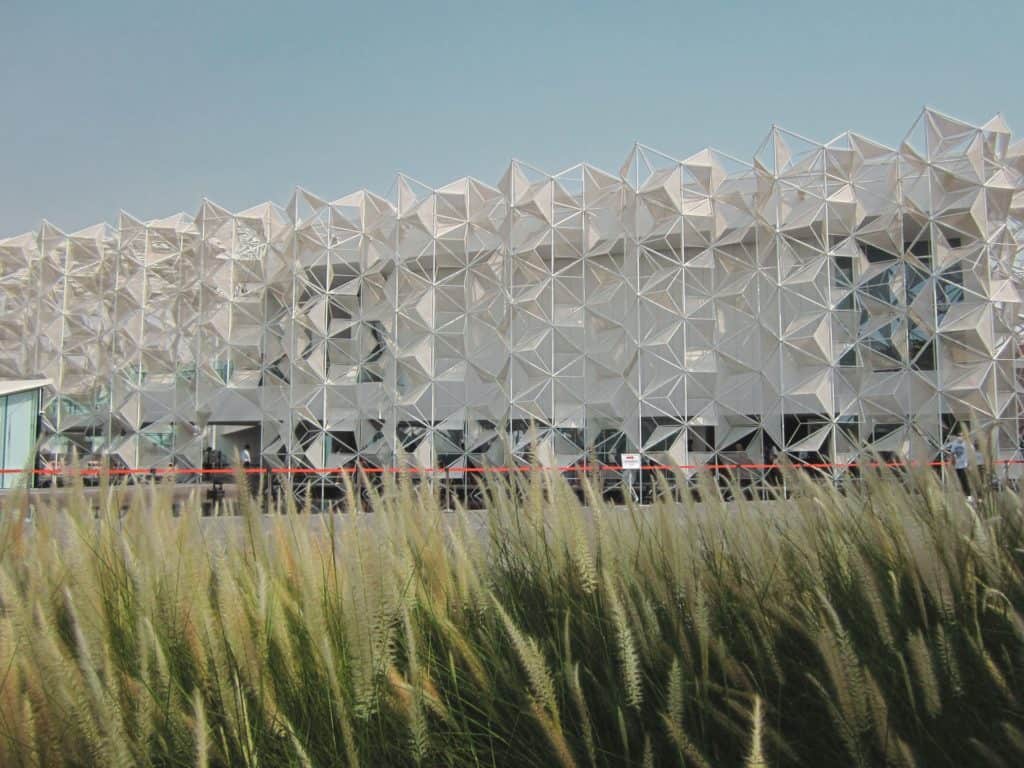
While Expo 2020 faced challenges with its migrant workforce, the event’s legacy will redefine urban planning and sustainability. The site will transform into District 2020 — a city reminiscent of Singapore’s 42,000-home eco ‘smart’ development.
District 2020 will be a so-called ’15-minute city’ — if everything goes according to plan, at least. “Residents should be able to access all amenities on foot in 15 minutes or less”, explains Dina Storey (Director of Sustainability Operations at Expo 2020).
The pavilions and other structures on the expo site will be remodelled into offices, innovation centres, and even sustainable housing.
Whereas expos in the past often failed to find a proper home in the host city’s wider urban development, District 2020 is the most ambitious repurposing plan to date.
And with 10 kilometres of cycle tracks, 5 kilometres of jogging paths, and a 4-kilometre autonomous vehicle public transit route, the plan seems to be set up for success.
It remains to be seen how much of the plan will come to fruition, but one thing is certain. The expos of the future have now seen that it is possible to have a strategy in place to avoid their sites falling into ruin after the event ends.
Yes, Osaka 2025 — we’re all looking at you.
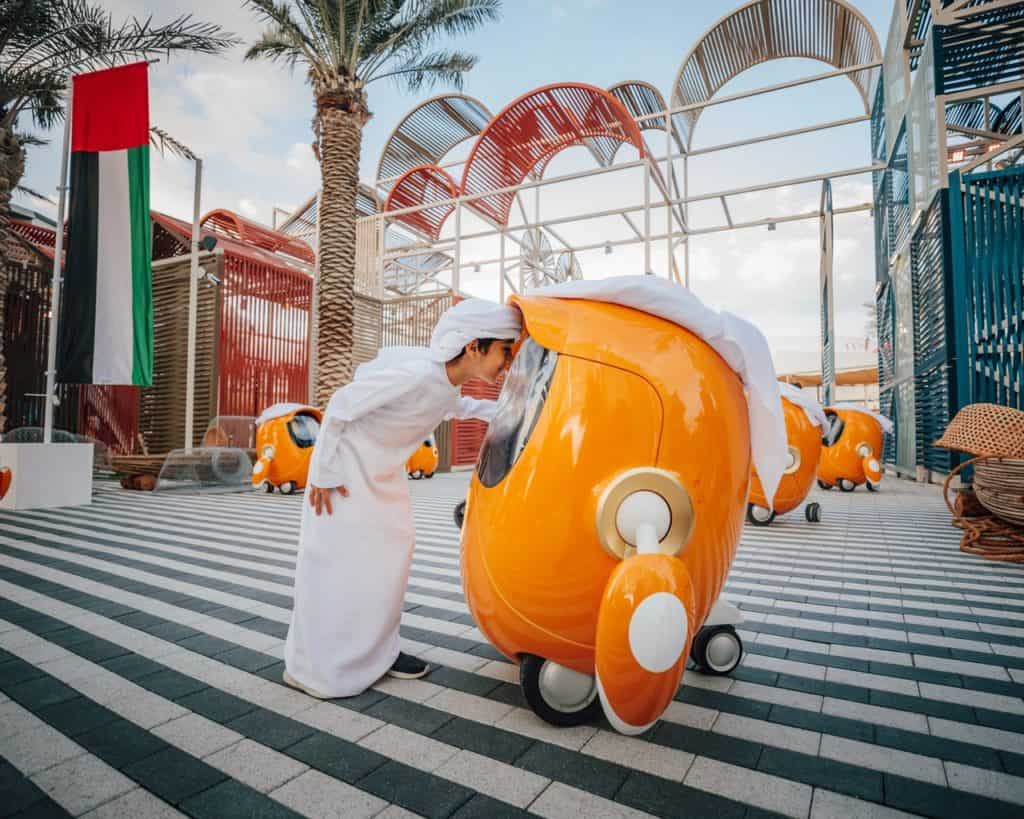
I believe we will always remember Expo 2020 as the expo that was almost one of the greatest in modern history.
Yes, the expo added 2% to the United Arab Emirates’ GDP. And it played a vital role in the country’s economic recovery from the pandemic. Yes, it was also a major contributor to the digital transformation of Dubai and the UAE. But as it stands now, the Big Three world expos — yes, I just made that up — need not surrender their thrones.
London 1851 (The Great Exhibition) will always be the first world expo.
Shanghai 2010 is still the biggest world expo to date.
And the most iconic world expo for a Belgian travel blogger — yours truly, for example — is still Brussels 1958, without a doubt.
Had COVID not been a factor, who knows what the economic, cultural, and diplomatic impact of Dubai 2020 would have been?
With District 2020, an ambitious plan to hang on to the legacy of Expo 2020 is in place. And now, it’s up to the people of Dubai to deliver on their promise.
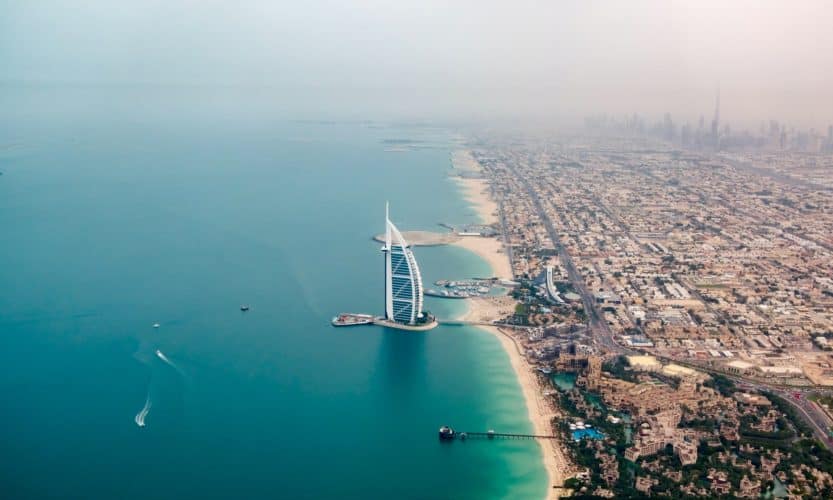
When travelling to Dubai, there are a few things you should know. And I am here to tell you all about it. Let’s dive right in!
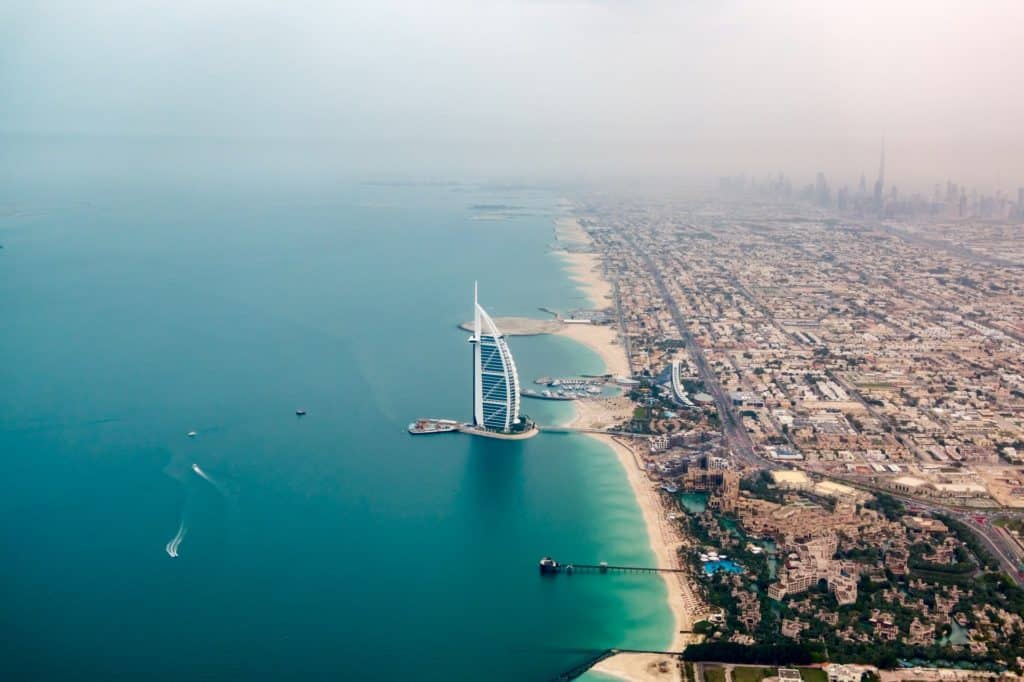
With a population of over 3 million, Dubai is the largest city in the United Arab Emirates (UAE) and the capital of the Emirate of Dubai.
The city was established in the 18th century as a small fishing village and taken over in 1830 by a segment of the Bani Yas tribe. At the time, this tribe was led by the Maktoum Family — whose descendants still rule Dubai today.
In 1966, oil was discovered in Dubai — stimulating economic growth and attracting traders to settle in the city (which had already grown in size thanks to its flourishing pearling industry).
Over the past fifty years, Dubai has transformed from a minor settlement in the Persian Gulf to a major economic, architectural, and touristic hub in the Middle East.
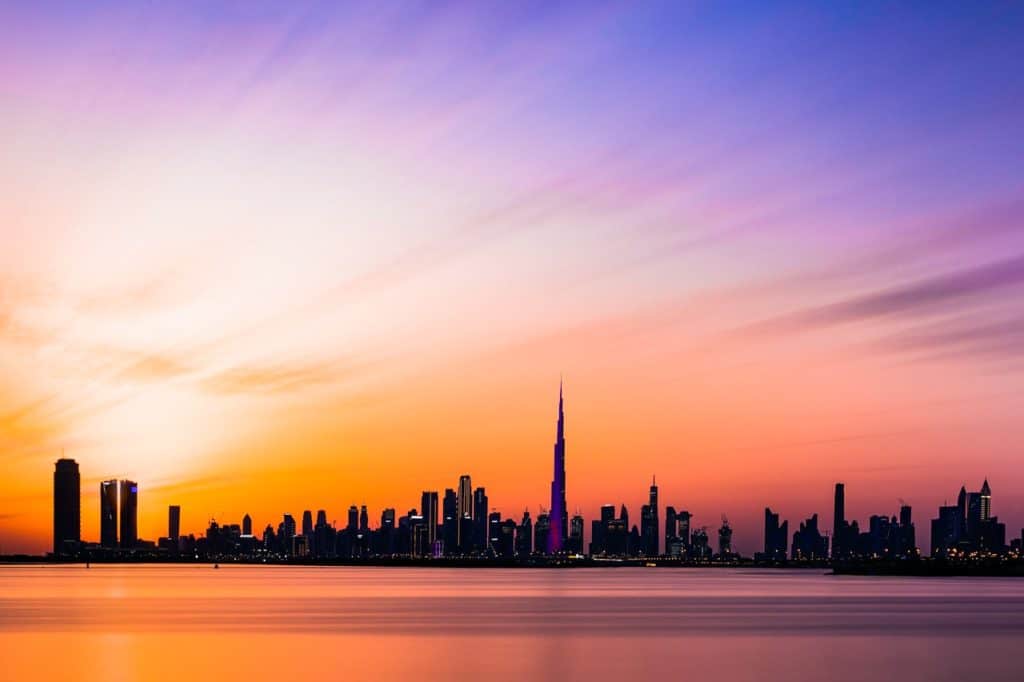
The official religion of the UAE is Islam. While it is true that Dubai is among the more open-minded destinations in the Middle East, the country — and, by extension, the city — practices Sharia law. Things that might seem normal to a typical western traveller, like sharing a hotel room as an unmarried couple, are prohibited under Sharia. Read up on this before travelling to Dubai.
In general, you won’t need to dress differently than you would on a holiday at Palm Springs or some European beach destination. When you’re visiting religious buildings, traditional markets, or rural areas, however, it’s good practice to be respectful of local habits. In other words, it’s advisable for people of all genders to wear clothes that cover your arms and legs.
Dubai is one of the world’s most popular tourist destinations. As such, the Dubaian people — yes, Dubaian is a real word — know more than enough English to understand your order at the restaurant or your destinations in the cab. If you can understand this article, you won’t have any linguistic trouble in Dubai.
While selling and consuming alcohol is legal in Dubai, it is strictly regulated. Non-Muslim adults (21+) are allowed to consume alcohol in licensed venues (most hotels, clubs, and restaurants have a license). Drug laws are less lenient, however. If you are found in possession of drugs — no matter what amount — you will likely be arrested and jailed.
Generally speaking, Dubai is a very safe destination for international travellers. Violent law is virtually nonexistent and petty theft is rare. That said, things like homosexual acts and speaking out against the royal family are illegal, so keep that in mind when travelling to Dubai.
It’s true that Dubai doesn’t have quite the cultural history of other major cities around the world. That being said, there are plenty of things to do in and around the emirate to get you excited — whether you’re looking for an adrenaline rush, the latest fashion, or just a beautiful view.
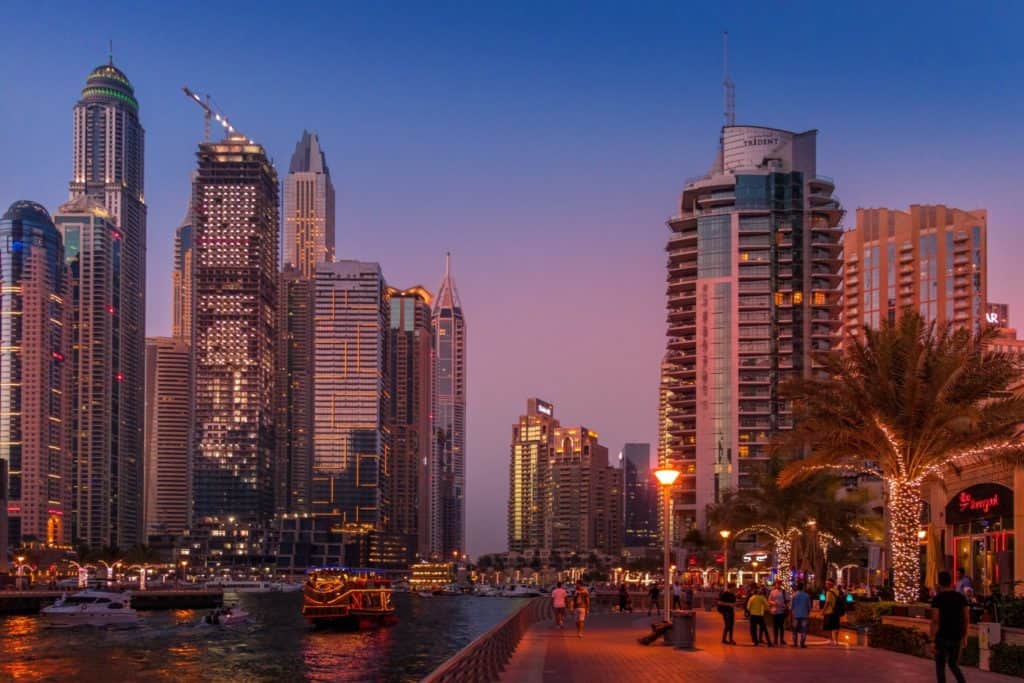
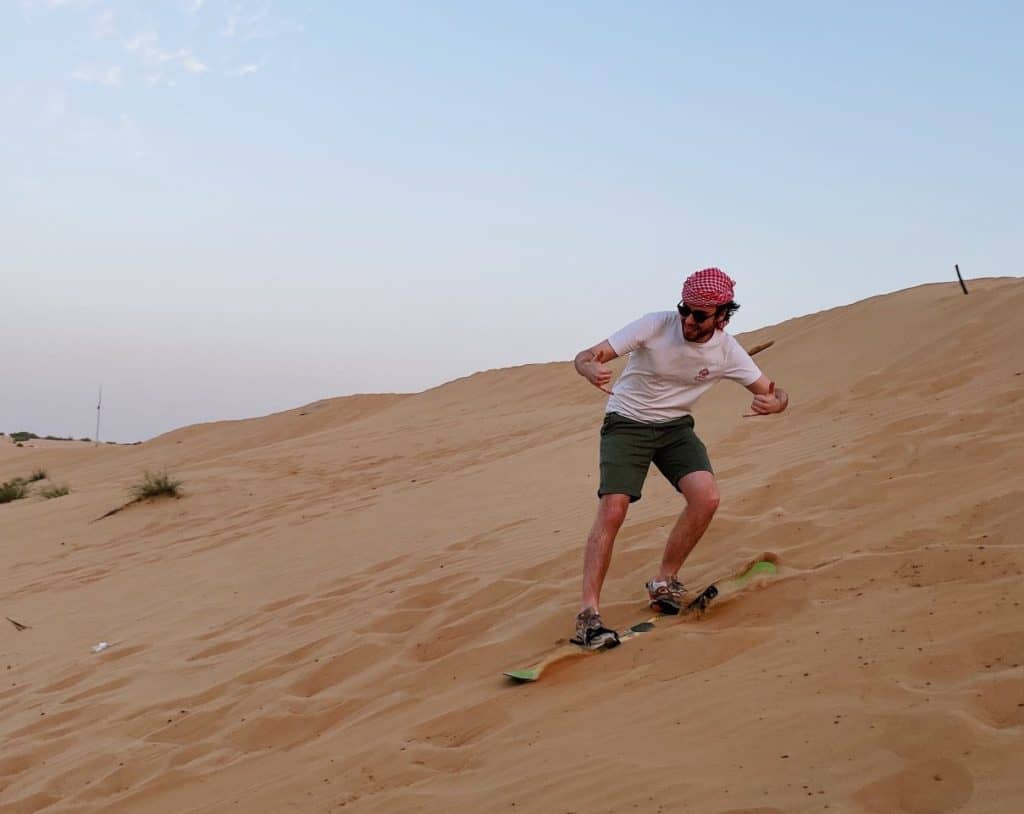
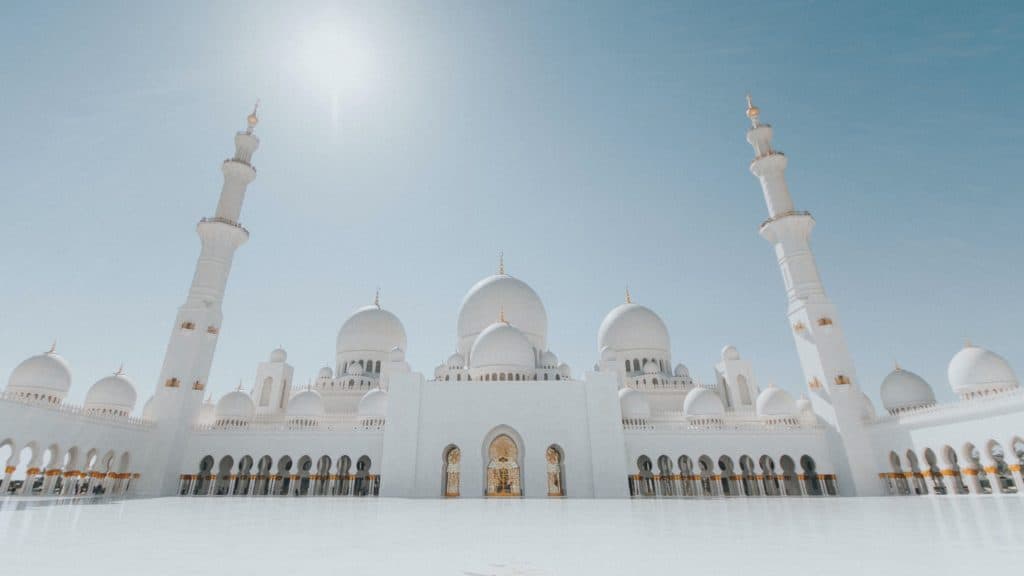
When travelling to Dubai, taking a day trip to Abu Dhabi is almost like a prerequisite. It would be a shame to go to Dubai and not take a day out of your itinerary to visit the largest of the Emirates.
Two things you absolutely can’t miss are the Sheikh Zayed Grand Mosque and the Louvre.
If you’re not a very experienced traveller — or if you just need a bit of guidance — you may be confused when packing for your trip to Dubai.
Luckily, the internet (in this case: me) is here to help!
I’ve compiled a Dubai packing list in a useful Google Sheets spreadsheet, just for you.
All you have to do? Fill in your name and email in the form below, and you’ll get the link sent to you.
Design by NXNW.